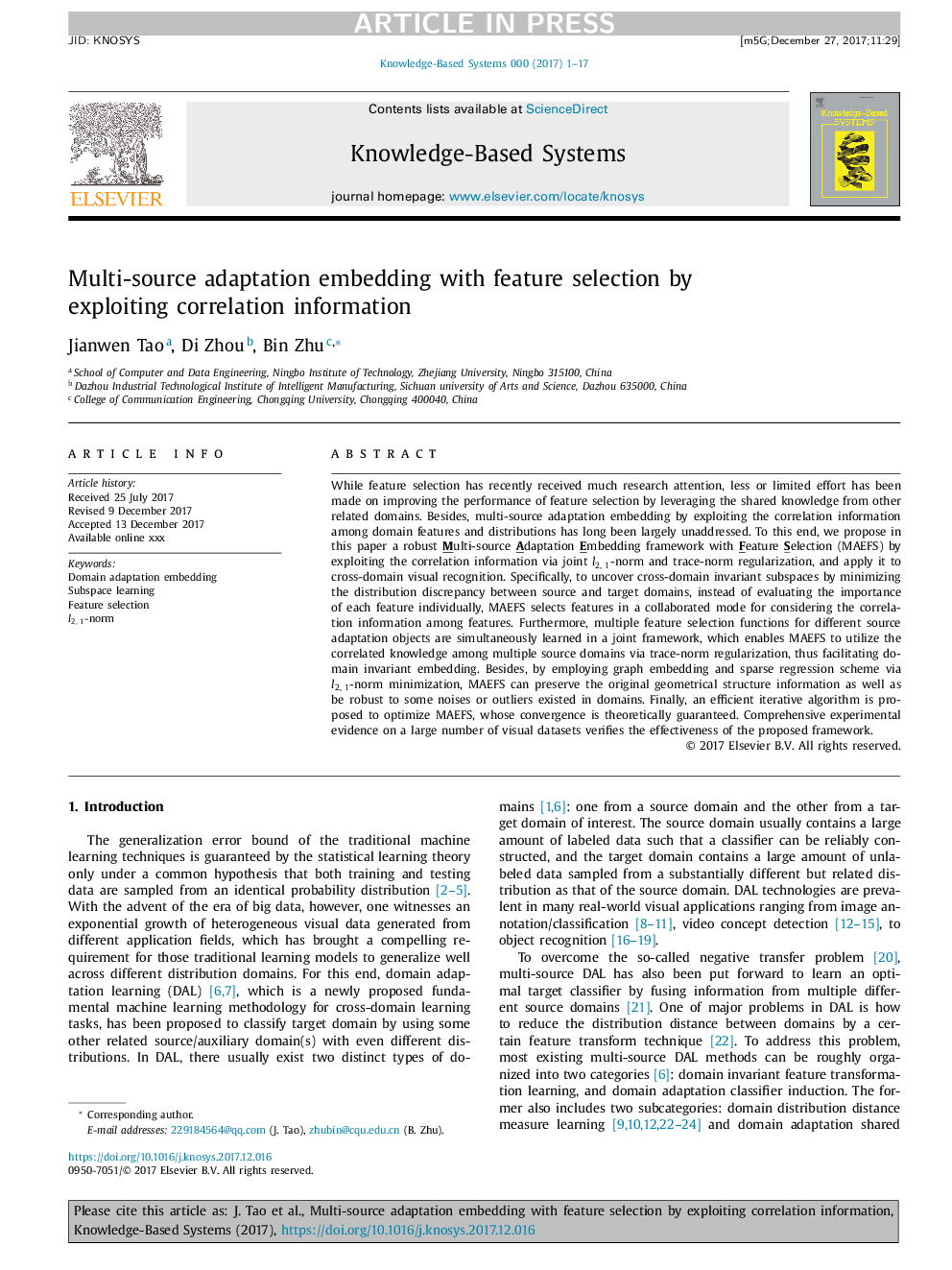ترجمه فارسی عنوان مقاله
تعبیه سازگاری چند منبع با انتخاب ویژگی با استفاده از اطلاعات همبستگی
عنوان انگلیسی
Multi-source adaptation embedding with feature selection by exploiting correlation information
| کد مقاله | سال انتشار | تعداد صفحات مقاله انگلیسی |
|---|---|---|
| 107040 | 2018 | 17 صفحه PDF |
منبع

Publisher : Elsevier - Science Direct (الزویر - ساینس دایرکت)
Journal : Knowledge-Based Systems, Volume 143, 1 March 2018, Pages 208-224

